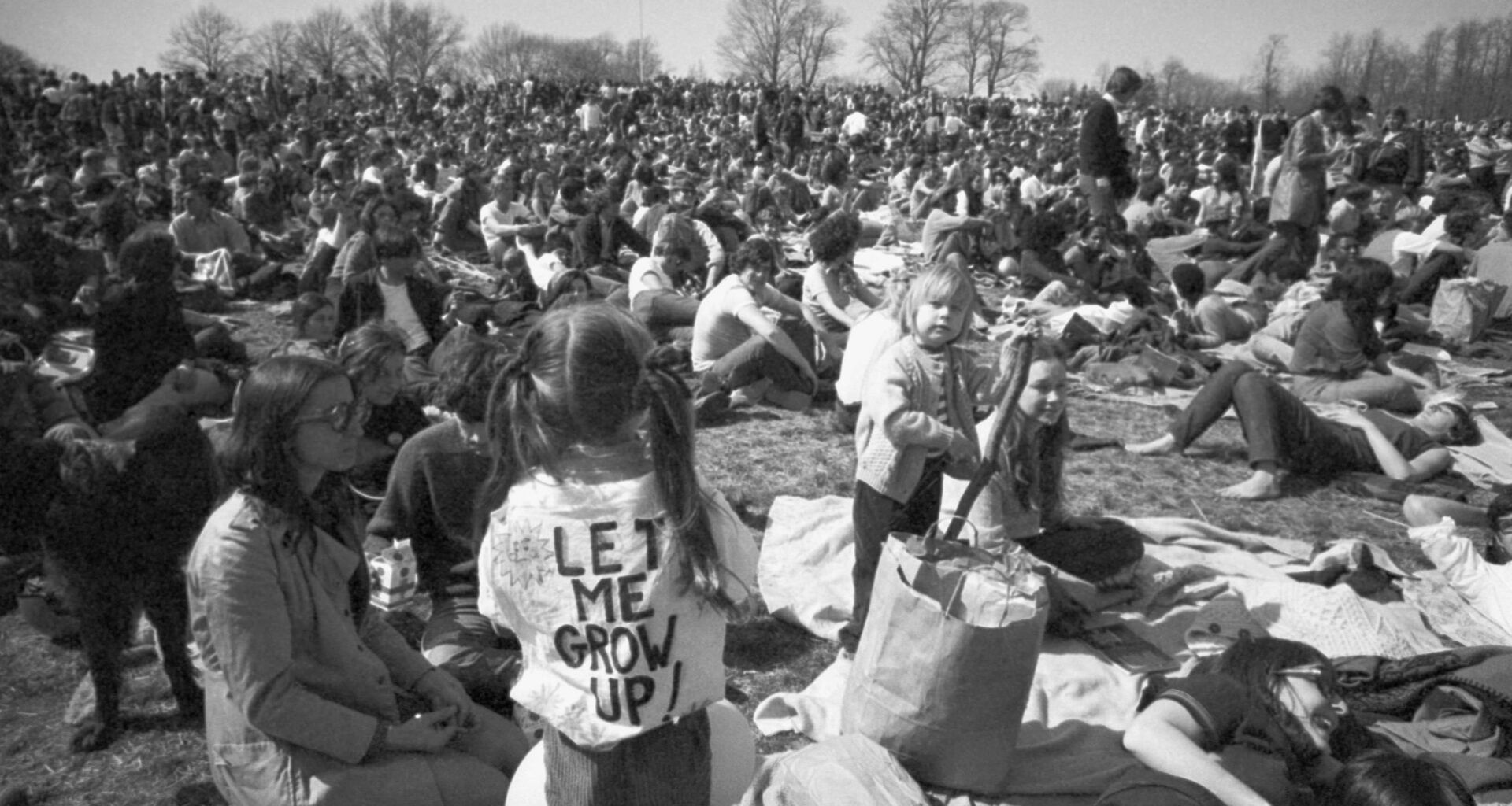JL: The late Allen Ginsberg on the first Earth Day, which was here in Philadelphia 55 years ago. He was known for embodying counterculture. He wrote beat literature and confessional poetry. Let’s just say he never held back.
SP: No, he didn’t. But let’s take a listen to a more contemporary poet — poet and activist Amanda Gorman. She was the first person to be named National Youth Poet Laureate, and many folks may remember that she rose to fame in 2021 for writing and delivering her poem “The Hill We Climb” at the inauguration of [President] Joe Biden. She’s also done a lot of nature poetry. Here she’s performing an earlier poem of hers, “Earthrise.”
Amanda Gorman:
“On Christmas Eve, 1968, astronaut Bill Anders
Snapped a photo of the earth
As Apollo 8 orbited the moon.
Those three guys
Were surprised
To see from their eyes
Our planet looked like an earthrise
A blue orb hovering over the moon’s gray horizon,
with deep oceans and silver skies.
It was our world’s first glance at itself
Our first chance to see a shared reality,
A declared stance and a commonality;
A glimpse into our planet’s mirror,
And as threats drew nearer,
Our own urgency became clearer,
As we realize that we hold nothing dearer
than this floating body we all call home.”
JL: Amanda Gorman, reading and performing her poem “Earthrise.” I’m here with Susan Phillips from our Climate Desk on Earth Day, pointing out poignant writings about nature. Susan, let’s go way back to “Leaves of Grass.”
SP: Yes — the American poet Walt Whitman. He self-published this volume of poetry back in 1855. Walt Whitman is known as the “father of free verse.” So you could trace both Allen Ginsberg and Amanda Gorman’s poetry all the way back to Walt Whitman, who had a local connection here, Jennifer. He lived out his final years in Camden, New Jersey — and you know, folks can still go and tour his home there.
JL: Can you channel your inner Walt Whitman?
SP: I will try to channel my inner Walt Whitman.
JL: OK, I’d love for you to read something from “Leaves of Grass.”
SP: OK, this is a little tiny section from “Sea-Drift”:
“Two feather’d guests from Alabama, two together, and their nest, and four light-green eggs spotted with brown. And every day the he-bird to and fro near at hand. And every day the she-bird crouch’d on her nest, silent, with bright eyes. And every day I, a curious boy, never too close, never disturbing them, cautiously peering, absorbing, translating.”
JL: Oh, I love it. I love it —
SP: … especially now when we’ve got lots of birds migrating into this area. And I just love that he said “guests from Alabama.” You know, these birds come from all over the place.
